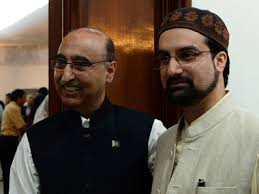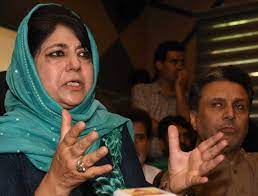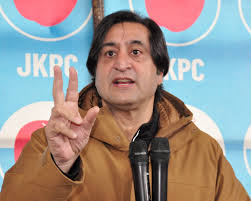The separatists of Kashmir — both the moderate and hawkish wings — had been marginalised and were fighting for space, when New Delhi threw them the lifeline of relevance. The cancellation of talks at the national security adviser (NSA) level between the two nations might well work for New Delhi in domestic politics, but in Kashmir, the All-Parties Hurriyat Conference (APHC) leadership has emerged as the unlikely winner of this fiasco.
 If Pakistan continues to maintain its stand that no talks will be possible if the Hurriyat leadership is not consulted beforehand, it would be a new lease of life for the APHC, ensuring its domination of political discourse in Kashmir for years to come.
If Pakistan continues to maintain its stand that no talks will be possible if the Hurriyat leadership is not consulted beforehand, it would be a new lease of life for the APHC, ensuring its domination of political discourse in Kashmir for years to come.
Until a month ago, both the factions — one led by Mirwaiz Umar Farooq considered moderate for his willingness for dialogue and another led by the hawk Syed Ali Shah Geelani — were confined mostly to social media networks and the occasional press statement. But now, there is a buzz in the separatist camps.
Political observers in Kashmir believe New Delhi has played spoilsport. The presence of Hurriyat leaders ahead of any talks between India and Pakistan is merely symbolic, and not a factor that could have serious consequences on any talks. It has been the sort of ritual that was previously facilitated by governments led by the Congress and BJP.
New-found relevance
Observers in Kashmir maintain that if Pakistan continues to maintain its stand on the APHC, its symbolic importance in Kashmir is likely to rise. On the ground, the truth is that the separatist leadership has lost credibility, but no one can deny their relevance in the Valley.
This relevance could have been breached by the Jammu and Kashmir Peoples Democratic Party (PDP) patriarch Mufti Mohammad Syed, who is governing the state in an alliance with the BJP, had he not been humiliated and cornered politically by his alliance partner. In Kashmir, there is an all-pervasive view that the relevance of mainstream politicians is guaranteed by India, while Pakistan has been the ultimate certificate provider to Kashmiri separatists.
Recently, when Pakistan refused to invite the Speaker of the Jammu and Kashmir Assembly for the Commonwealth Parliamentary Union conference in Islamabad, it was a message aimed at the 87 legislative members of the state Assembly that Islamabad does not recognise the democratically elected leaders of Kashmir.
This was a strategic move aimed at making the Hurriyat relevant in Kashmir, ahead of the NSA talks. This decision by Pakistan ended up pitting the mainstream political parties in Kashmir against the APHC. India later decided to boycott the conference, which was to be held in Islamabad from 30 September to 8 October, after Pakistan’s move which underlined its position that Jammu and Kashmir was a “disputed” territory.
On the other hand, the PDP ruling the state in alliance with the BJP is in favour of dialogue between India and the APHC, but not with Pakistan. But, the PDP handled the situation well by refusing to arrest the separatist leadership, conscious of the political fallout that would ensue in Kashmir.
However, this sudden relevance of the separatists is unlikely to last long. Islamabad, as in many previous instances, will eventually decide to shun the separatist leaders, when the realisation sets in that at some point, India and Pakistan will have to sit and talk. Continuing to shun dialogue will mean increased hostility on the international border and Line of Control, which is something both nations will want to avoid. This is particularly so after the flare-up of recent tensions that left many people dead, and hundreds displaced on both sides.
‘Pakistan gives separatists legitimacy’
Noor Ahmad Baba, a political analyst, describes the situation by saying, “They (APHC) are comparatively weaker today than in 1993, when the organisations came into being. It is now divided, has factions and has failed to effectively deliver. However, the separatist amalgams continue to remain relevant because of the legitimacy that Pakistan gives them and the sentiment they represent.”
In the last 20 years, the APHC has witnessed three divisions and splintered into many factions, each calling itself the ‘real’ representative of the people. Through this splintering and in-fighting, the Hurriyat Conference has struggled to stay relevant. Had New Delhi not insisted that Pakistan should avoid meeting the separatist leadership, this once influential separatist block in the Kashmir region would probably have even made sure that most of them were not even allowed to fly to New Delhi.
What unfolded however, was very different.






